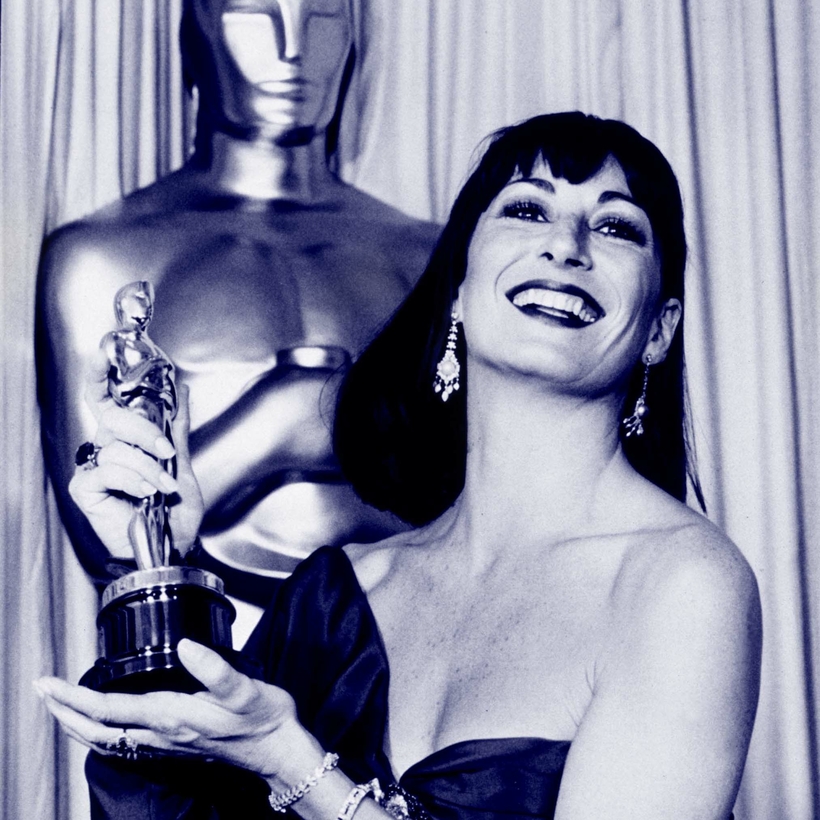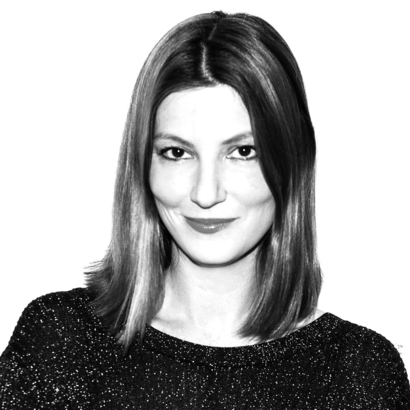Only in pandemic times are journalists invited into bed with Anjelica Huston. But such was the scene when Zooming in with the affable legend of stage and screen to discuss her foray into ceramics. Oh, everyone was fully dressed—Huston in her smartly appointed (and rather cozy) Pacific Palisades bedroom, and your Air Mail correspondent a lifetime away in a stodgy home office in New York.
In some ways, this unfussiness, candor, and intimacy is pure Huston. As an actress, she exists among the greats. Regal yet earthy, omniscient but mortal, she endows even the frostiest characters with humanity and warmth.
But here, in bed, she treats a stranger like an old friend—another rare talent. “Short of St. Barth’s, this is a lovely place to be,” she says, pulling a comforter around her shoulders. Huston has just returned from a trip there after spending most of the pandemic at her ranch, in California’s Central Valley, which she bought in the mid-80s when she’d broken out with hits such as Prizzi’s Honor.

Did she secretly enjoy the stay-at-home orders? “I had the best time,” she says with a not-so-sly grin. “The lack of guilt over not working was so thrilling. I think it’s because I had one of those fathers that pushed me.” (That would be another Hollywood legend, the director, actor, and artist John Huston.) “I remember once saying to him that I really would like to be a lady of leisure. It registered with such disgust that I’ve been guilty about leisure ever since.”
But Huston didn’t exactly spend the past 14 months lounging around and stress-eating sourdough. Instead, a nascent interest in ceramics became consuming.
Huston admits that she wouldn’t have conceived of working with clay when her late husband, the sculptor Robert Graham, was alive. Although Graham, who was known for his stately bronze nudes, died in 2008, Huston says that he has been known to strategically manifest. “His ghost visits me from time to time,” she says, again with a bit of smize, “and eggs me on to be a little braver than I naturally would have found myself.”

Huston’s first works were hand-built bowls, but the satisfaction she found in perfecting them goaded her to keep going. A few years ago, after observing students at a yoga studio in Los Angeles, she ginned up the courage to try her hand at the female form. The shapes were inspired by the way her fellow yogis occupied themselves by stretching, lounging, and meditating in the moments before class began. “Just women being women,” describes Huston.
And so she sculpted one such female in a seated position, on her heels, clay-colored and naked, full of movement but deliberately vague on details. “I didn’t think much of her until quite recently, when I looked at her and thought, That’s really not quite bad,” she says. She was encouraged by friends such as designer Pamela Barish and her husband, the sculptor Laddie John Dill, and when Barish held a small party showcasing Huston’s work in her Venice boutique, the pieces quickly sold out.

“I love making money,” says Huston with a laugh. “Even though it’s not my main gig, there’s something flattering and sweet about people buying these things.” She used the proceeds to set up a home studio of her own, complete with a wheel and kiln. The timing was fortuitous, and during lockdown, Huston worked feverishly.
This month, she’s back with another show at Pamela Barish called “20 Women 20 Bowls,” which comprises exactly what it sounds like, except these days the women are fully dressed—glazed, rather—and are hotly coveted by the likes of Wes Anderson. Also a fan of her acting, he enlisted Huston to narrate his upcoming film, The French Dispatch.

Now that the Hollywood grind and its filming schedules are resuming in earnest, Huston may soon be asked to choose between art and commerce, but as she approaches her 70th birthday, she struggles to find meaningful roles on the screen and stage.
“Most of the parts out there are for people afflicted not just with old age but also with Alzheimer’s and cancer,” she says. “Not that I have—actually, I have a lot against Alzheimer’s and cancer.” She’ll hold out for a quality comedy—ideally, one that’s tinged with adventure. Until then, she’ll make do making art and indulging in pandemic-era television, like the rest of us. “I still like those horrible Housewives,” she says. Again, with that smile.
Ashley Baker is the Style Editor for Air Mail


